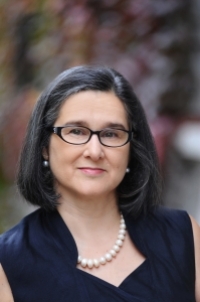Lateness as Regret

2018-19 CUSP Distinguished Speaker Series - Core Connections
Thursday, February 28, 2019
6:00–8:00 p.m.
Davis Auditorium, Schapiro CEPSR
Biography
Teodolinda Barolini is the Lorenzo Da Ponte Professor of Italian at Columbia University. A Fellow of the American Academy of Arts and Sciences, the American Philosophical Society, the Medieval Academy of America, and the Accademia Olimpica (Vicenza), she was elected to Italy’s National Academy, the Accademia Nazionale dei Lincei, in 2018.
From 1997 to 2003, Professor Barolini served as fifteenth president of the Dante Society of America.
Barolini’s research focuses on thirteenth- and fourteenth-century Italian literary culture, its relation to classical antiquity, and its reception through the centuries to our own day. She has written widely on Dante, Petrarch, Boccaccio, and the medieval lyric.
Dante’s Poets: Textuality and Truth in the ‘Comedy’ (Princeton, 1984; Italian trans. Il miglior fabbro: Dante e i poeti della ‘Commedia’, Bollati Boringhieri, 1993) won the Marraro Prize of the Modern Language Association and the John Nicholas Brown Prize of the Medieval Academy. The Undivine Comedy: Detheologizing Dante (Princeton, 1992; Italian trans. La Commedia senza Dio: Dante e la creazione di una realtà virtuale, Feltrinelli, 2003) looks at how Dante constructs a virtual reality in language in the light of his repeated truth claims, and sets out a method of reading—“detheologizing”—that counteracts the narrative structures that work to overdetermine our hermeneutic response to the poem. Dante and the Origins of Italian Literary Culture (Fordham, 2006; Italian trans. Bompiani, 2012) explores the origins of Italian literary culture through four prisms: “Philosophy of Desire”; “Christian and Pagan Intertexts”; “Ordering the Macrotext: Time and Narrative”; and “Gender.” This volume won the Premio Flaiano in italianistica in 2007 (http://www.youtube.com/watch?v=V4lfPpRMEj0).
Barolini’s commentary to Dante’s early lyric poetry, Rime giovanili e della ‘Vita Nuova’, was published by Rizzoli in 2009 (http://www.bur.eu/libri/rime-2/). This commentary reconstructs Dante’s poetic and ideological itinerary from its courtly beginnings to the Paradiso. Her expanded and revised English edition, with translations of Dante’s poetry by Richard Lansing, Dante’s Lyric Poetry: Lyrics of Youth and of the ‘Vita Nuova’, was published by the University of Toronto Press in 2014. It was awarded the Aldo and Jeanne Scaglione Publication Award of the Modern Language Association for a Manuscript in Italian Literary Studies in 2012.
Editor of the website Digital Dante, Barolini is the author of the Commento Baroliniano, the first digital commentary to the Commedia, committed to an Aristotelian and non-dualist reading of Dante’s poem: https://digitaldante.columbia.edu/dante/divine-comedy/.